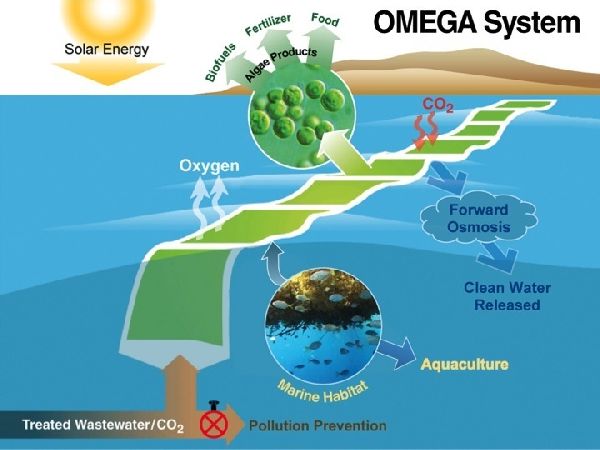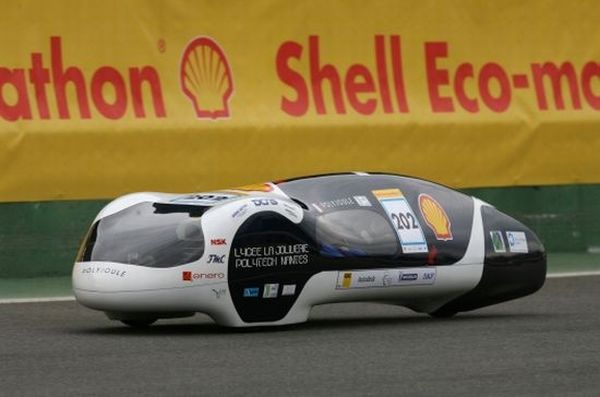The concept of introducing freshwater algae that is enclosed in large flexible plastic tubes into the ocean might sound a bit crazy at the first look, but project OMEGA is anything but wacky. This unique system proposed by NASA allows for production of biofuel without depending on crops or placing any pressure whatsoever on agricultural land. By using the ocean and dead marine ecosystem areas as its work field; treated wastewater and the sun as its fuel, and producing clean water along with oxygen, the system actually turns everything that is considered an environmental threat into an asset. And it does so without placing a demand on the traditional biofuel resources.

Freshwater algae are capable of turning wastewater into biofuel under the right conditions and by using project OMEGA (Offshore Membrane Enclosures for Growing Algae) NASA intends to use this ability to humanity’s advantage. The freshwater algae are enclosed in giant plastic structures called photobioreactors that are fitted with a unique layer called a ‘forward-osmosis membranes’, which will allow the passage of freshwater from the system into the ocean, but does not allow salt water to enter inside. The algae will use the waste water pumped into the photobioreactors and sunshine to turn it into fresh water, while utilizing the nutrients inside to make its own biofuel.
The clean water that is produced is released into the ocean through the forward osmosis layer, while the biofuel is collected from the pipes. The oxygen produced from OMEGA will also be released into the ocean as it can help reinvigorate marine ecosystems, and rich oxygen content is essential for the oceans of the world to act as carbon sinks. For those fearing a disaster at sea if the photobioreactors break or leak, there is no worry at all. Since this is fresh water algae, the moment the plastic enclosure breaks, they simply die in the salt water surroundings. So there is no threat to existing ecosystems from any alien algae.
Via: NASA




